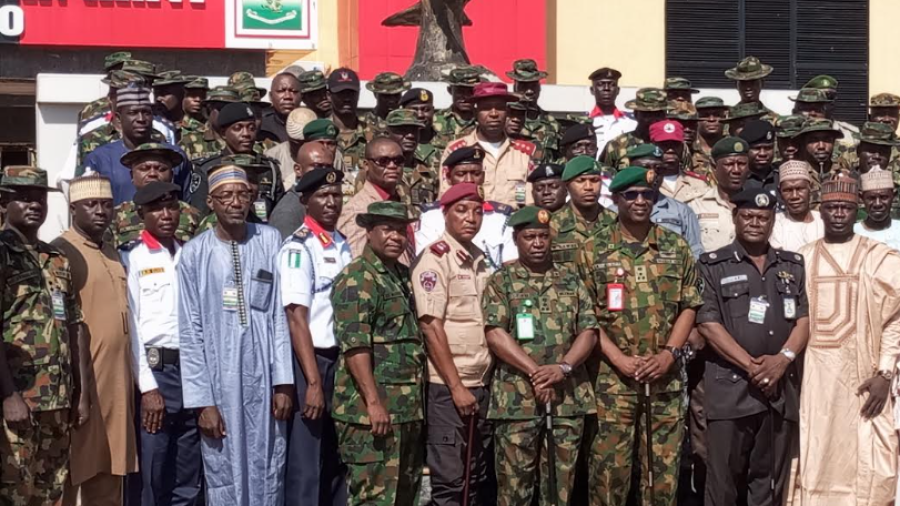Brig. General Ibikunle Ajose, the Acting General Officer Commanding (GOC) of the 8 Division, has emphasized that Nigeria’s security challenges are becoming more complex, multidimensional, and transnational. He stressed the need for continuous innovation and the integration of technology into military operations to effectively tackle insurgency, terrorism, and internal security threats.
According to Punch, Ajose made these remarks on Tuesday while opening an operational planning cadre at the 8 Division headquarters in Sokoto. The training, themed “Leveraging New Technologies for Innovative Operations Planning Process by Commanders in a Joint Environment,” was designed to equip military commanders with modern strategies in response to the evolving nature of warfare and the increasing role of technology in shaping military operations.
“As we gather here today, it is important to recognize that the security environment is evolving rapidly. The challenges we face are complex, multidimensional, and often transnational,” Ajose remarked. He further emphasized that the fight against insurgency, terrorism, and banditry requires innovative and adaptable planning processes.
Ajose explained that this focus aligns with the Chief of Army Staff’s directive to transform the Nigerian Army into a highly trained, equipped, and motivated force capable of fulfilling its constitutional responsibilities within a joint operational environment. He expressed optimism that the training would generate actionable insights to overcome operational challenges that hinder the Army’s effectiveness in various conflict zones.
In an interview reported by Punch, the GOC highlighted the essential role of technology in modern military operations. “Historically, wars were fought with traditional strategies and conventional weapons. Today, the battlefield has expanded into new domains such as cyber, space, and information warfare,” he explained. Ajose urged commanders to incorporate cutting-edge technologies, including artificial intelligence, drones, cyber capabilities, and advanced surveillance systems, to boost operational effectiveness and ensure mission success.
Ajose also stressed the importance of collaboration between military services and security agencies, noting that coordination is critical for success in a joint operational environment. “Our operations no longer exist in isolation; they require collaboration across multiple domains and partners,” he said, underscoring the need for synchronized intelligence sharing and real-time decision-making.
He called on participants to leverage the training opportunity to refine the Army’s strategies and ensure that it remains fully prepared to meet future security challenges within the Joint Operations Area. He also assured participants that the knowledge gained would significantly shape the future of the Nigerian Army’s operational effectiveness, particularly in integrating technology.
Ajose commended the heads of security agencies and officers for their participation in the program, expressing confidence that the sessions would be enlightening and impactful.
